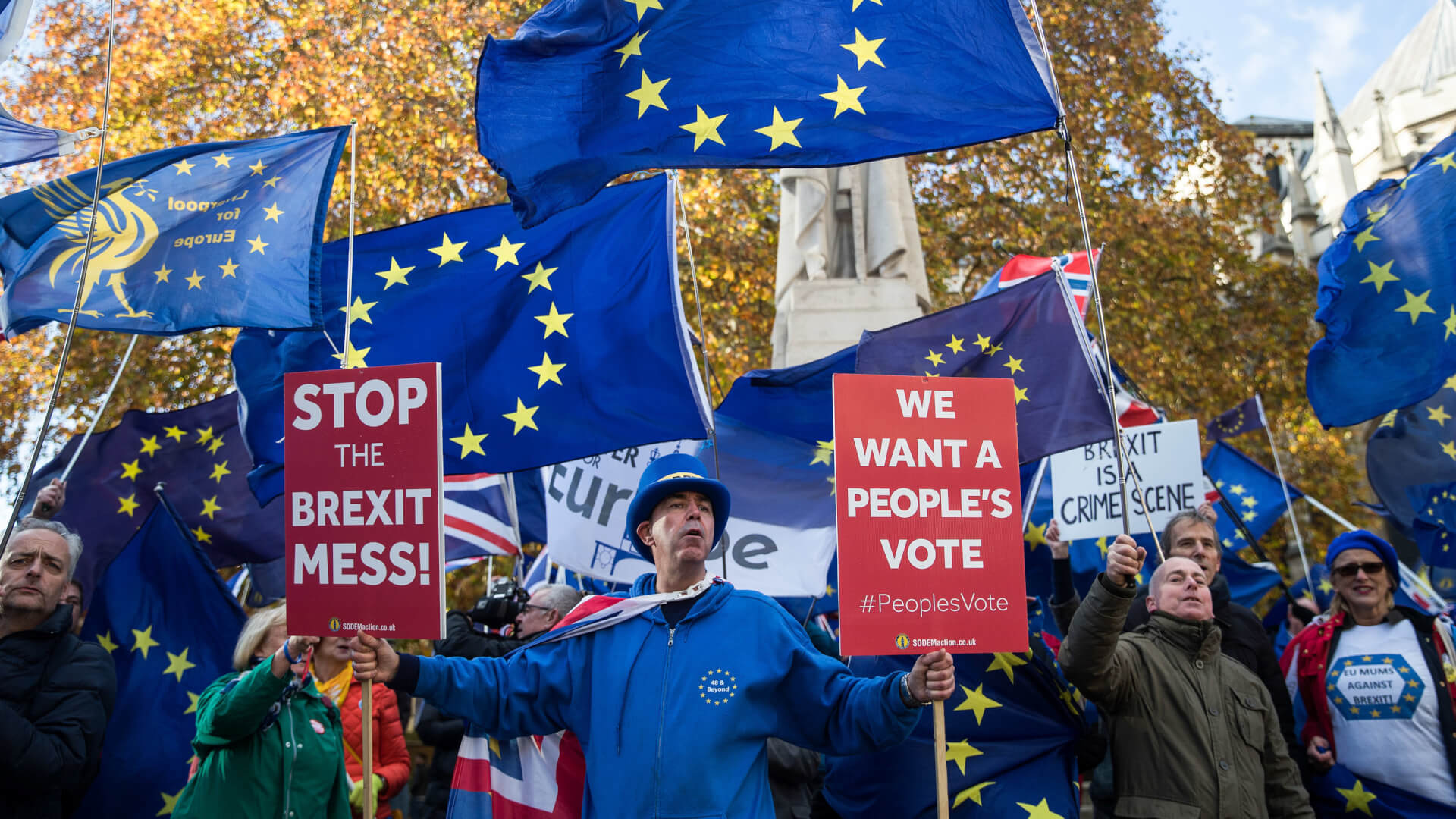The United Kingdom (UK) and the European Union’s (EU) in-person Brexit negotiations are set to resume after weeks of suspension after the EU’s chief negotiator, Michel Barnier, went into self-isolation after being exposed to a colleague that had tested positive. The United Kingdom formally exited the bloc on January 31, and the transition period is set to end on December 31.
Both sides continue to get uneasy as the December 31 deadline for a trade deal approaches. Failure to come to a compromise by that date would lead to the trade relations between the two sides’ coming under the World Trade Organisation rules, which will mandate the imposition of tariffs. Yet, representatives and leaders of the UK and the EU continue to remain adamant on compromising. Recently, British Finance Minister Rishi Sunak said that while the country was committed to reaching an agreement by the deadline, it would not agree to a deal “at any cost.” Similarly, the President of the European Commission, Ursula von der Leyen, said that despite “genuine progress” on several issues, the bloc was “not ready to put into question the integrity of the single market, the main safeguard for European prosperity and wealth.”
Till date, there are two main issues that continue to hinder the conclusion of the negotiations. The first is on the issue of the competition rules, that is the nature and extent of state aid support that the government can give to businesses. The second issue, which has emerged as a significant sticking point in the EU-UK Brexit negotiations, is that of a deal on fisheries. The UK wants to achieve a Norway-like agreement with the EU, wherein quotas and access are annually negotiated. Barrie Deas, who is the chief executive of Britain’s National Federation of Fishermen’s Organisations, said that the deal with Norway clearly indicates that the EU’s resistance to such an agreement is an “aberration in international fisheries terms.” On the other hand, the EU wishes to secure a fixed fishing quota as a part of its post-Brexit deal with the UK. Brussels believes that providing the bloc access to British waters is the price that the UK will have to pay to secure a zero-tariff deal with the EU.
Just this week, the British Parliament passed the Fisheries Act 2020, which gives the UK complete control over its fishing waters. This effectively brings an end to the rights of the EU vessels to access British waters for the first time since 1973. British Environment Secretary Georgy Eustice celebrated this as a “huge moment for the UK fishing industry.” He said that the act would pave the way for the UK to emerge as a “leading, responsible, independent coastal states.” He also said that it would provide unique opportunities to British fishermen and their future generations. Meanwhile, Barnier will be convening a meeting for the bloc’s fisheries ministers “to discuss the stage of play of the negotiations.” Representatives of France, Germany, Denmark, Spain, Belgium, Ireland and the Netherlands are likely to participate in the discussion.
Another issue that had spurred a conflict between the two sides for the Boris Johnson-led government’s introduction of the Internal Markets Bill. The Internal Market Bill is designed to protect trade between the UK’s four nations after Brexit. However, it goes back on the withdrawal agreement’s promise to allow EU laws to govern Northern Ireland’s border with the Republic of Ireland. While several British politicians accepted that the legislation would amount to a violation of the country’s obligations under the Brexit treaty (and, therefore, international law), Johnson has defended his decision, saying that such a provision may be necessary to act as a “legal safety net” in order to “uphold the integrity of the UK [and] also to protect the Northern Irish peace process and the Good Friday Agreement.” The EU, for its part, has pursued legal action against the UK over the controversial bill. Earlier this month, Boris Johnson suffered a heavy defeat in the parliament’s upper house as the House of Lords voted overwhelmingly—433 votes to 165—to remove clauses from the bill that would allow the government to breach international law.
As Brexit Deadline Approaches, Several Differences Continue to Obstruct Brexit Negotiation
With several disagreements continuing to exist between the UK and the European Union, what does the future of the Brexit negotiation look like?
November 27, 2020

SOURCE: THE NEW YORK TIMES
